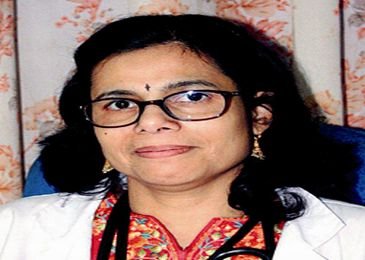Emergency Medicine should be a specialty in India: Dr Mabel Vasnaik
October 04, 2013 | Friday | Interviews | By Rahul Koul Koul
Emergency Medicine should be a specialty in India: Dr Mabel Vasnaik
Dr Mabel Vasnaik, consultant & head, adult emergency department, Manipal Hospitals.
What are the major challenges in handling medical emergencies in Indian hospitals?
Dr Mabel Vasnaik: When you have an emergency, you need to go to the emergency department. But in India, we have casualty wards manned by junior doctors, instead of having a fully-equipped emergency department run by professionals. That's a challenge. In countries like US and UK, Emergency Medicine in itself is a specialty and it should be the same in India as well. Their hospitals will have an exclusive emergency department run by fully qualified professionals. In India, medical education in Emergency Medicine began only 2 years ago, which was recognized by Medical Council of India. Doctors who are qualified in handling emergencies will know how to thoroughly examine from tip-to-toe.
Initially, the government was ignorant. However, with the intervention of Medical Council of India, we now have a separate course in Emergency Medicine. The government has to be made more aware in this regard.
How is medical emergency handling in India different from other countries like the US and UK?
In the west, they employ trained emergency physicians in the emergency department as opposed to us, who employ junior doctors. They will have round-the-clock, fully-manned, emergency department. When you are in a crisis, you'd want to go to a qualified professional who has been trained to handle emergencies. To begin with, people need to be trained in basic first aid since most of them don't know what to do in a medical emergency. In India, most first aid boxes are found to be empty with nothing inside it. They also should have an awareness about ambulance services like '108'. The issue is, even the basic things are not very sound in our society.
What is the basic advice that you would offer to a layman in an emergency situation?
The first thing is not to panic. If you know to give first aid, then proceed with it. Then call for help, either your neighbors or an ambulance. Assess the patient's condition and do not offer him or her any food or drink. If it is a bleeding, try to stop it. And take the patient to the nearest hospital.
Are we facing shortage of human resources in Emergency Medicine?
There is no dearth of human resources. Rather, there is lack of training and development of qualified professionals. We can start teaching first aid implementation beginning from class 7 or class 10. Sadly, we do not do it in schools, colleges, and even in corporates. We lack in the number of trained people who know how to handle emergencies. We need to start training people as they are willing to be trained. We just need to open up more.
How can we bring about attitudinal change in the minds of people to attend a medical emergency?
Whatever help you offer in an emergency situation is far better than nothing at all. The hospitals should not retain or withhold people who bring in patients in medical emergency crisis. Most people fear about medico-legal complications that they might have to face if they offer a helping hand. But people will come forward to help, once they are educated in handling emergencies.









